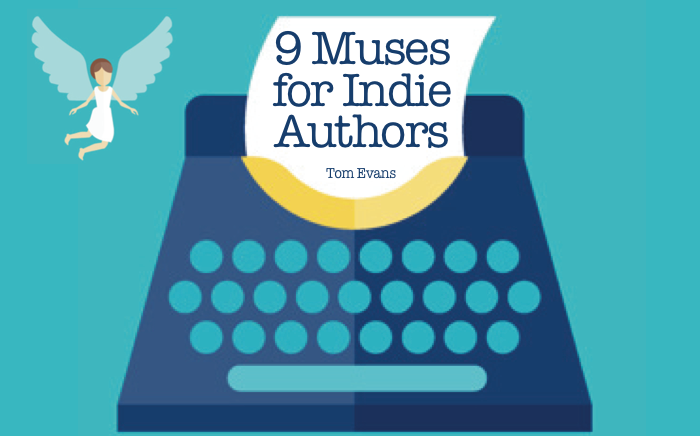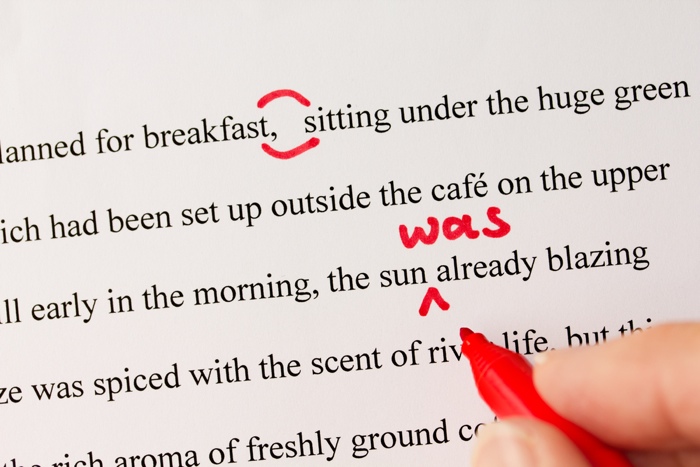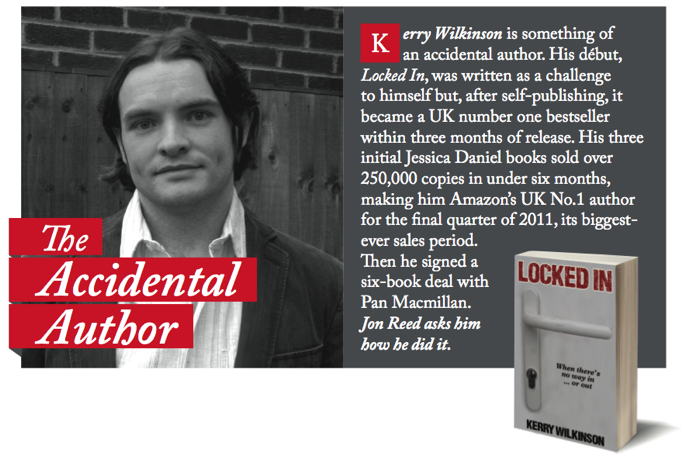9 muses for self-publishing success

Have you been visited by the Muse lately? If you’re an indie author, you need more than one source of inspiration. Tom Evans looks at the Nine Muses needed for self-publishing success.
[rt_reading_time label="Reading Time:" postfix="minutes" postfix_singular="minute"]
When we connect with our Muse, we are in flow and in the zone. When writer’s block visits our door, it is like our Muse has left town and taken a break.
In mythology, The Muses personify the source of inspiration. They were said to be the nine daughters of Zeus and Mnemosyne. They were, or are, Calliope (the Muse of epic poetry), Clio (the Muse for history), Euterpe (the Muse of flutes and lyric poetry), Thalia (the Muse for comedy and pastoral poetry), Melpomene (the Muse of tragedy), Terpsichore (the Muse for dance), Erato (the Muse of love poetry), Polyhymnia (the Muse of sacred poetry) and Urania (the Muse for astronomy).
These days we tend to think of our Muse in the singular and these classical attributions have largely been forgotten about.
When it comes to indie-publishing a book, we can achieve much more success by resurrecting the concept of tuning into multiple Muses. So at different points of the production process, we can tap into attributes that we may have buried or forgotten about. Here are nine contemporary modes of creativity authors can tune into.
1. Writing Muse
 This is the closest to classical Muse. This is the Muse that gives us the ideas for our book and the words within it. I find tuning into ‘her’ is best in the morning as I am a lark but we all have our naturally creative times. Find yours and guard them jealously. I even make appointments with my chapters (i.e. my Muse) and move clients around them.
This is the closest to classical Muse. This is the Muse that gives us the ideas for our book and the words within it. I find tuning into ‘her’ is best in the morning as I am a lark but we all have our naturally creative times. Find yours and guard them jealously. I even make appointments with my chapters (i.e. my Muse) and move clients around them.
If you Muse leaves you, there are few ways to reconnect. Meditation is best but going for a walk can work equally well. Getting away from your desk into another environment is key and remembering that inspiration is an aspect of the respiration process is paramount. Breathe deeply with your diaphragm and you will power the pump of creativity and forge that reconnection.
2. Project Management Muse
 If you publish traditionally, your first draft enters the publishers process and you only see it again when its nearly finished. Your chapters might be rearranged, words edited out of recognition and a cover you had never imagined appears. Hopefully and ideally, these changes are all for the better.
If you publish traditionally, your first draft enters the publishers process and you only see it again when its nearly finished. Your chapters might be rearranged, words edited out of recognition and a cover you had never imagined appears. Hopefully and ideally, these changes are all for the better.
For indie-publishers though, all aspects of book production are in their hands. We have to find an editor and proof reader we like and process their changes. Book cover design and internal layout (for print and ereader) are tasks we must outsource or learn to do ourselves. With final draft in hand, or on hard drive, we must upload the files to the relevant distribution channels. We have shifted from creator of words to rolling up sleeves and getting things done in the right order at the right time.
3. Connectivity Muse
 When it comes to getting your book indie-published, success is not so much predicated by what you know but who you know. Knowing someone who will write your foreword can give your book gravitas and resonance. Knowing a few sample, and honest, beta readers can give you feedback that your idea was a good one and your Writing Muse was by your side.
When it comes to getting your book indie-published, success is not so much predicated by what you know but who you know. Knowing someone who will write your foreword can give your book gravitas and resonance. Knowing a few sample, and honest, beta readers can give you feedback that your idea was a good one and your Writing Muse was by your side.
These connections are the seeds of success. These days it is the readers who are the sales force. Readers talk about what they are reading to other readers. Get one reader to inspire two others and you have tapped into exponential sales growth. Getting them to leave reviews gives other readers confidence to invest in your words. Such connections are like gold dust.
4. Marketing Muse
 Nowadays, indie author book signing are rare but still appropriate if you have the right connections. The action is all online on Twitter, Facebook, Instagram, Goodreads and all sorts of niche forums.
Nowadays, indie author book signing are rare but still appropriate if you have the right connections. The action is all online on Twitter, Facebook, Instagram, Goodreads and all sorts of niche forums.
The successful indie author must also be a marketing and social media ninja. For self- effacing author who would rather get on with their next book, the thought of marketing themselves can leave them quaking in their boots. The solution to this is to tap into your Writing Muse again to come up with creative and fun ways to go about it.
5. Presenting Muse
 It can be a horror of horror for some authors to appear in public and recite their words. Being in the spotlight, in front of readers, is where the real gold lies. The buzz you get from bringing your message to an audience is electric. To get instant feedback that your words can entertain and enlighten is one of the most warming results to be gained from writing a book in the first place.
It can be a horror of horror for some authors to appear in public and recite their words. Being in the spotlight, in front of readers, is where the real gold lies. The buzz you get from bringing your message to an audience is electric. To get instant feedback that your words can entertain and enlighten is one of the most warming results to be gained from writing a book in the first place.
Nowadays, if public speaking terrifies you, there are loads of ways to allow your Presenting Muse out of the closet. Firstly, you don’t have to appear live. You can record a podcast or video and distribute it free over the Interweb. Secondly, you don’t have to leave your garret, you can broadcast (or narrowcast) a webinar or Hangout and reach your audience virtually.
6. Strategic Muse
 There is yet another hat to where that involves indie authors taking the so-called ‘helicopter view’. As we engage with the Muses above, it pay dividends to be mindful of where each book, each connection, each appearance and all marketing activities fit into the overall scheme of things. Nowadays one book is not an option. Publishers and readers want a series. Your combined creative output builds your author platform. This becomes the soapbox from which the world hears about you. You can build it from the bottom up, blogging, tweeting and narrowcasting, with the books as the pinnacle. Alternatively, start with the books and back fill the supporting structure
There is yet another hat to where that involves indie authors taking the so-called ‘helicopter view’. As we engage with the Muses above, it pay dividends to be mindful of where each book, each connection, each appearance and all marketing activities fit into the overall scheme of things. Nowadays one book is not an option. Publishers and readers want a series. Your combined creative output builds your author platform. This becomes the soapbox from which the world hears about you. You can build it from the bottom up, blogging, tweeting and narrowcasting, with the books as the pinnacle. Alternatively, start with the books and back fill the supporting structure
7. Temporal Muse
 The last and most important Muse to be mindful (or timeful) of is the Temporal Muse.
The last and most important Muse to be mindful (or timeful) of is the Temporal Muse.
Writing in tune with our most creative time of the day and the optimum seasons gives our Writing Muse her loudest voices. Promoting and presenting our books in tune with the Moon is a marketing trick only known by a select few. Either consciously or unconsciously, these authors tip the odds in their favour when it comes to becoming a bestseller.
Knowing when to rest and to gather the harvest for our next book is key too.
8. Serendipity Muse
 Some people seem to be born lucky and always land on their feet.For some, life seems to be a struggle.
Some people seem to be born lucky and always land on their feet.For some, life seems to be a struggle.
The best way I have found to turn the odds in your favour is to meditate daily.
Ten minutes of calm and ‘Me Time’ does more than relax us and tune us into our Writing Muse.
By quietening the mind, we become more attuned to signs and serendipities that can help us on our path.
9. Gratitude Muse
 Being a published author already sets you apart from the vast majority of humans. You have got your thoughts out of your head and down on paper so all other humans can have new thoughts based upon what you have written. This is worth being thankful for.
Being a published author already sets you apart from the vast majority of humans. You have got your thoughts out of your head and down on paper so all other humans can have new thoughts based upon what you have written. This is worth being thankful for.
We should of course be thankful for all the readers who invest in our books. They have so much choice these days and, apart from financial investment, they are making a time investment to read our words. We should be thankful even more for five star reviews but also for what one star reviews tell us.
Be thankful too for all these Muses, connect with them when the time is right and they will serve you well. Forget they are there and you may end up pushing water uphill.
This article first appeared in our self-publishing themed issue of Publishing Talk Magazine.



